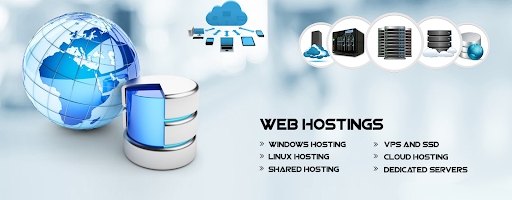
To gain access to cloud computing networks, businesses no longer need to become experts in the architecture and related technologies of the cloud, due to managed cloud services. Most companies are moving their operations to the cloud since on-premises infrastructure does not facilitate remote work as well. This may be a contributing factor to the cloud’s rapid expansion.
By contracting with a managed cloud services provider to handle cloud operations on the company’s behalf, organisations can quickly and efficiently incorporate the technology into their operations. Public, private, and hybrid clouds are all fair game for this type of outsourcing, which can be done in whole or in part.
With the services provided by a cloud maintenance service provider {know more: https://onohosting.com/}, the customer can decide which IT responsibilities are best handled in-house and which ones can be outsourced. Managed cloud services may also involve e-commerce and digital experience platform administration, depending on the demands of the individual customer. Management of the cloud’s hardware, software, networks, and operating systems; architectural guidance; oversight of software and application stacks hosted in the cloud.
Many businesses find that the cost of managed cloud services is far outweighed by the time and money it would take to teach their staff how to maintain cloud infrastructure, along with all the associated tools and application stacks.
The Concept of a Managed Cloud Service Provider (MCSP)
An MCSP is a company that offers managed cloud services. These managed cloud service providers may be affiliated with the cloud resources you’re using, or they may be independently run. Managed cloud providers typically provide subscription plans for their services. Depending on the client’s needs, a managed cloud service provider can either supplement existing in-house resources or completely replace them.
Managed service providers in the cloud: benefits and drawbacks
If you’re considering partnering with a managed service provider in the cloud, there are a lot of pros and cons to weigh. Knowing about these considerations may not sway your decision, but it will help you get the most out of whichever service providers you end up choosing.
Profits from Using MCSPs
The benefits you get from the cloud will be different depending on the services you use and the cloud provider you choose with. Advantages, on the other hand, typically include:
- Resource maximisation
With the help of MCSPs, you may locate the services that are the most suitable for your needs. They may also advise you on the best pricing models to use and how to configure your services to achieve maximum efficiency at the lowest possible cost. In addition to providing advice for better settings, many service providers can provide specific performance data or statistics for your existing resources.
- By using cloud-based services
When constructing a hybrid or multi-cloud infrastructure, the assistance of an MCSP with the necessary integrations is invaluable. A hybrid cloud makes use of both on-premises hardware and cloud services, while a multi-cloud utilises cloud services from several providers. These setups typically need more extensive configuration than single-cloud or cloud-only deployments. Using managed cloud service providers (MCSPs), you can ensure that the cloud resources you choose work in tandem with your existing infrastructure. They can also aid in making sure that personnel, users, and apps can access services without any hitches.
- Budget cuts were expected
Several MCSPs provide subscription-based, tiered assistance to meet the needs of their customers. This allows for more leeway in your finances and may help you stick to your monthly spending goals. You can use credit to pay for services with some businesses. Therefore, you can receive more help when it is most needed and less help when things are running smoothly. This works wonderfully for companies that operate on a seasonal or otherwise unpredictable timetable. Firms specialising in taxes and audits, for instance.
Problems with MCSP
There are many positive aspects of collaborating with an MCSP, but there are also some drawbacks to consider. Keep in mind a few key points:
- Optimal performance at the expense of optimization
Optimizing cloud resources often entails settling for subpar data storage tiers or performance options in the name of saving money. This is fine for most information and applications, but it could cause issues for some. If providers do not appropriately prioritise assets, you may experience difficulties gaining access to your data or experiencing longer than expected processing times.
That’s why it’s so important to weigh the outcomes of any “optimizations” your provider suggests or implements with you before proceeding. It’s important to assess whether the outcomes satisfy your requirements after making a decision, so that you can make any necessary adjustments.
- Threats to confidentiality and safety are amplified when multiple tenants share a building.
As with public cloud services in general, MCSPs that provide cloud services use a multi-tenant design. Therefore, service providers manage multiple clients simultaneously and store their data centrally. This shouldn’t be an issue if the service providers have taken appropriate safety precautions. The performance of your system, however, may suffer if another user doesn’t. If you don’t want this to happen, it’s in your best interest to investigate the safety measures taken by your service provider and take other appropriate actions to ensure the privacy and integrity of your data.
- Prohibitively expensive
Hiring an MCSP will boost your cloud spending budget but the costs are predictable. The service provider’s fee could be quite high, depending on the scope of services rendered and the intricacy of your system. You should factor this into your financial plans. Failure to do so may result in unintended overspending. Cost savings from optimising cloud services and cutting back on internal resources more than make up the gap.
Simply put, the price of a Managed Service Provider is something every small business owner needs to consider (MSP). An MSP could be useful for your business if you frequently want IT assistance or if you spend excessive time troubleshooting technological issues on your own.








